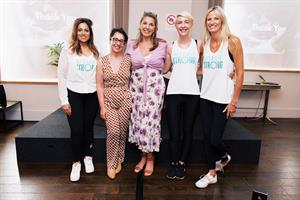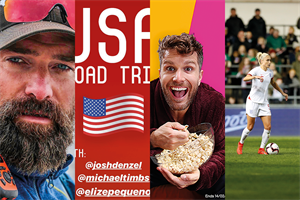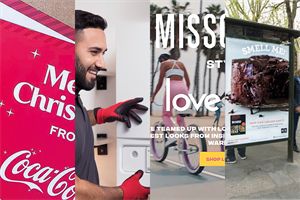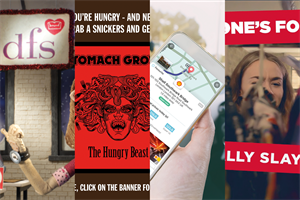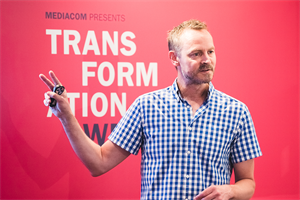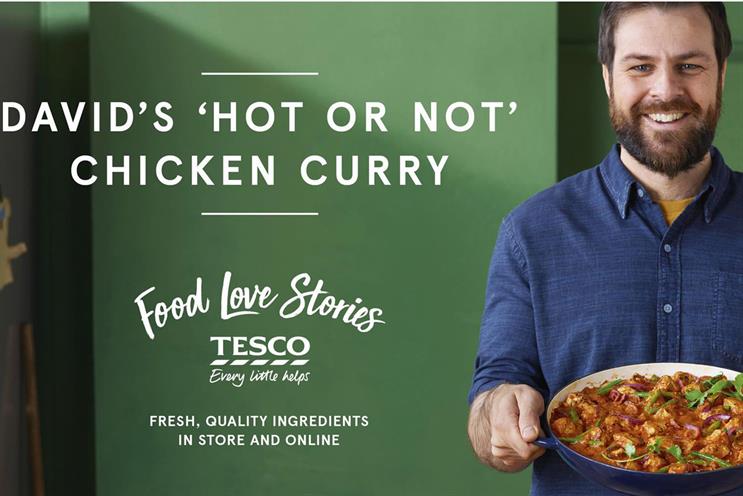
How can you make sure your advertising is effective? It’s a question that fascinates us at MediaCom because effectiveness is central to everything we do. However, there isn’t one simple answer – there are many.
We asked four clients to share their very different paths to effectiveness. For Direct Line Group, it was a fundamental shift to focus on long-term brand metrics. For Tesco, it involved digging into the emotional power of food. The Open University harnessed the power of a media partnership to communicate an inspiring and relevant message. The Army needed to reassess recruits’ motives.
Data fuels all this work, but what stands out is the power of insight, emotion and creativity in developing truly effective campaigns.
The power of long-term thinking and understanding of brand contribution
 Mark Evans, marketing director, Direct Line Group
Mark Evans, marketing director, Direct Line Group
Cost challenges are a fact of life, but they’ve been the norm in the insurance sector for a decade. The easy way to deliver a cost saving here is to shift money from brand-building to short-term acquisition. We did the opposite. We invested in brand-building and proving that it works across our portfolio of brands. It required patience and perseverance. What we built has become a key platform to cement the confidence, capability and credibility of marketing in the business.
Coincidentally, at the time of writing we are responding to a cost challenge. However, we are not panicking since we have the finance community saying that marketing "is the last place we want to have to take from". Because we are able to articulate precisely the short- and long-term impact of our marketing investment decisions we have changed the tone of conversation within the business. We can prove that our approach has improved spontaneous consideration and preference, and can see the impact that has had on our business. This empowers us to do the right things for our brands with a very explicit long-term perspective in mind.
We are proud that we went long when others went short. It was painful at times. However, there is a restless ambition in the team, so this journey represents how we constantly aim higher to bolster our brands and drive towards a customer-first business. 
The power of partnerships
 Ella Hall Acting marketing director, The Open University
Ella Hall Acting marketing director, The Open University
The Open University has long empowered people to change their lives and careers via part-time distance-learning qualifications they can fit around full-time jobs, raising families, or just leading busy lives.
However, the OU’s market has changed dramatically. Economic uncertainty combined with government funding cuts and a shift in student loan legislation in England has meant that the commitment to about six years of study can not be made lightly. In addition, while the OU is a well-loved and well-known institution, perceptions can be nostalgic and sentimental rather than modern and relevant.
Our marketing focuses on the recruitment of students across the UK and around the world. We therefore have thousands of students, each with a rich and engaging story to tell about how education is changing their life, and those of people around them, for the better. We had a huge appetite to tell these diverse stories in broadcast format and in June 2017, we launched our partnership with Channel 4 using three students (representing three key target audience segments) to tell their stories across TV, VOD, social and a C4 microsite.
The impact on our student number targets and brand health metrics has been phenomenal. As a result of the partnership, which goes with an integrated ad campaign, we have seen fundamental shifts in our student number delivery (we over-delivered by more than 16%). Our brand health metric shifted from 63% to a monthly average of 69% during the core activity and is now stable at 70%. As such, we are using media partnerships as the bedrock of our strategy moving forward. 
New insight fuelled our growth
 Nick Terry Marketing director, Recruiting Group (Capita & The British Army)
Nick Terry Marketing director, Recruiting Group (Capita & The British Army)
Joining the Army isn’t like other consumer decisions – it’s about changing your life. Reaching our audiences in media has become much more complex with fragmentation and digital channels.
Within the Recruiting Partnering Project, a partnership between Capita and the British Army, we set a challenging brief that focused on a compelling reason to join the Army: belonging. New recruits confirmed the benefit of belonging to something bigger than yourself, a brotherhood/sisterhood that supports you and helps you grow – a unique offer versus civilian employers.
The campaign "This is Belonging" has run on broadcast and targeted AV channels, and across digital and social, with creative executions matched to moments of belonging. A headline campaign communicates the benefits of "belonging" and is coupled with conversion campaigns for multiple recruiting streams. A partnership with UNILAD has also delivered real cut-through, using soldiers and influencers to highlight the unique bonds of Army life.
The campaign is transforming how a new generation is seeing the British Army, and we are seeing applications increasing while the cost per application is reducing.
Breaking the category mould
Nick Ashley Head of media and planning, and Emma Botton Marketing communications director, Tesco
"Quality of food" is considered to be the biggest driver of supermarket choice. However, Tesco’s quality scores had stalled and we were trailing the competition. So while other supermarkets focused their advertising on food provenance or price, Tesco connected with the nation through emotive storytelling and the relationship we all have with mealtimes. Tesco "Food Love Stories" was born to celebrate "the food you love to cook, for the people you love". Yes, the campaign showcased the great quality food we sell, but the magic was food’s power to connect people. The tastiest stories spread and engaged the nation. AV and OOH drove Tesco brand metrics and, uniquely, radio was used as a food-based storytelling medium.
We personalised the stories with a data-led approach – for instance, 30-minute meals for time-poor millennials. We surrounded shoppers with stories, bringing them to life through stores and our wealth of owned media, including POS, recipe cards, emails, Tesco magazine and Tesco.com. We continue to evolve the campaign, for example up-weighting OOH regional bookings depending on local quality perceptions, and measuring creative wear-out to identify story lifespans, enabling us to reuse assets for long-term impact.
Tesco’s "Food Love Stories" is a success story. It has driven an increase in quality scores by 53% (7.7%pts) and is our most effective campaign to date. We were thrilled for this to be recognised at Cannes Lions Festival, where we were awarded the Grand Prix for Excellence in Media Planning.


